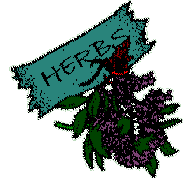 Herbs--H
Herbs--H 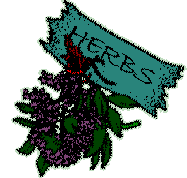
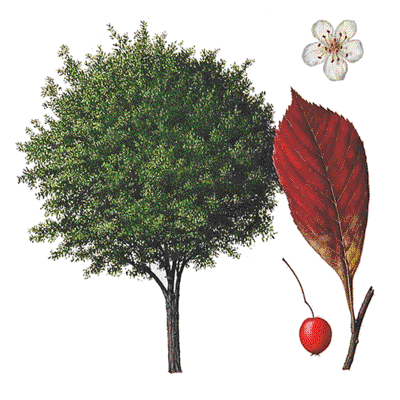 |
Common Names: Hawthorn, May Bush, Thorn Latin Name: Crataegus laevigata Parts Used: Ripe fruit (haws) Cultivation: Hawthorn is a small tree or large shrub. It is hardy to zone 3, prefers an alkaline pH, and grows best in rich, moist soil in full sun to part shade. Magickal Uses: Hawthorn bouquets are used at weddings to ensure health, happiness, and fertility. It is the "Thorn" referred to in "Oak, Ash, and Thorn," the combination of trees where you might find faeries. Hawthorn protects against lightening and damage from storms. Medicinal Uses: Hawthorn dilates the blood vessels and lowers blood pressure. It works directly on the heart muscle to help it work more efficiently. Researchers believe that hawthorn may be the basis for many new heart medications. Cautions: If you have a heart condition, SEE YOUR DOCTOR before attempting any treatment with hawthorn. Your heart is NOT anything to mess around with! |
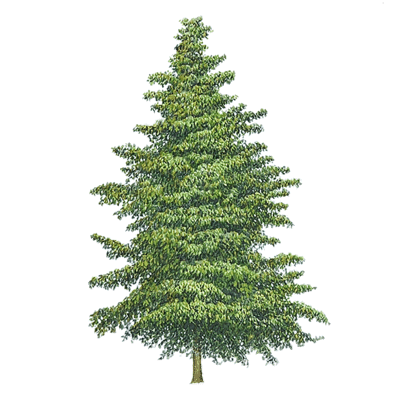 |
Common Names: Hazel, Coll Latin Name: Corylus spp. Parts Used: Nuts and twigs Cultivation: Hazel trees are hardy to zone 5. They grow best in deep, alkaline soil. Culinary Uses: The nuts are edible, and used frequently in desserts and as a flavoring. Magickal Uses: Hazel nuts bring luck, and can be eaten to increase wisdom. Twigs of hazel placed in the window frames will guard your house from lightening. Hazel wood makes excellent magick wands, and the forked twigs are often used by dowsers. |
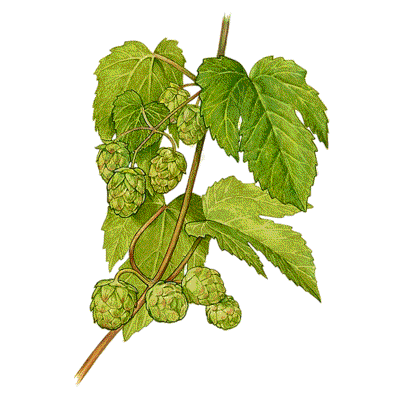 |
Common Names: Hops, Beer Flower Latin Name: Humulus lupulus Parts Used: The conelike female flower Cultivation: Hops are hardy perennials, growing in well-drained humous-y soil in full sun. Culinary Uses: Hops are the main flavoring and preservative agent for beer. Magickal Uses: Hops are used in healing sachets and incenses. Stuff a pillow with sweet hops to bring restful sleep. Medicinal Uses: Hops are used successfully in the treatment of insomnia. They ease tension and anxiety. Hops have a mild anti-septic action and can be used externally to treat ulcers and inflammations. Cautions: Do not use hops internally if you are suffering from depression, as they may aggravate the condition. |
Common Names: Horehound, Soldier's Tea, Marrubium Latin Name: Marrubium vulgare Parts Used: Leaves and flowers Cultivation: Horehound is a perennial, hardy to zone 4, which prefers well-drained, sandy soil with a pH of 6.9, in full sun. Culinary Uses: Horehound has a minty, menthol flavor. Horehound infusion is used as the base for candies. It is sometimes used as a substitute for hops in beer. Magickal Uses: Horehound is named for the Egyptian god Horus and can be nurned as incense in rituals designed to honor him. Use it in protection sachets, especially against sorcery. Drink horehound tea to help clear your mind. Medicinal Uses: Horehound can be used a a cough soother and expectorant. Horehound tea will aid the digestion. Use it externally to help speed the healing of wounds. Cautions: Large doses can have a laxative effect; very large doses can cause irregular heartbeat. | |
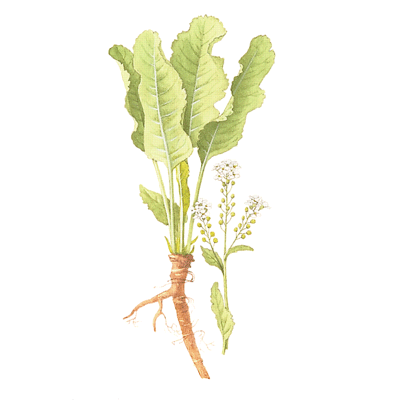 |
Common Names: Horseradish Latin Name: Armoracia rusticana Parts Used: Root and leaves Cultivation: Horseradish grows best in moist, rich, heavy soil with a pH of 6.8, in full sun. It is a perennial hardy to zone 5. Culinary Uses: Horseradish is probably best known as the spicy condiment made by mixing grated fresh horseradish root with vinegar or mayonnaise. You can also add the young leaves sparingly to salads. Magickal Uses: Sprinkle dried, powdered horseradish around your house to repel evil and negate any spells against you. Medicinal Uses: Horseradish is one of the more potent herbal diuretics, and as such is used to treat kidney disease. It stimulates the digestion. Use it externally as a compress for neuralgia, joint stiffness, and rheumatism. |
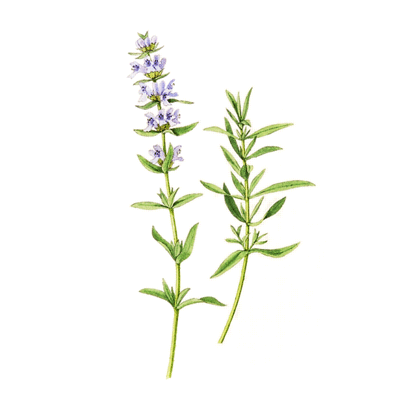 |
Common Names: Hyssop Latin Name: Hyssopus officinalis Parts Used: Shoots, leaves, and flowers Cultivation: Perennial, hardy to zone 4. It prefers light, well-drained soil with a pH of 6.7 in full sun to part shade. Cosmetic Uses: Use hyssop bath sachets for a soothing bath, oruse it in a steaming herbal facial to cleanse the skin. Culinary Uses: Hyssop leaves have a minty flavor and can be used to flavor soups, salads, poultry, and fruit. The dried leaves and flowers make a nice tea. Magickal Uses: Hyssop is a widely used purification herb. Sprinkle an infusion of hyssop around your home or over your person to cleanse it of negative influences. Medicinal Uses: Use a poultice of hyssop to help heal wounds and bruises, including black eyes. It has mild germ-killing attributes. It is an anti-spasmodic and mild expectorant, and can be used to treat colds and coughs. |
| A | B | C | D | E | F | G | H | I | J | K | L | M | N | O | P | Q | R | S | T | U | V | W | X | Y | Z |